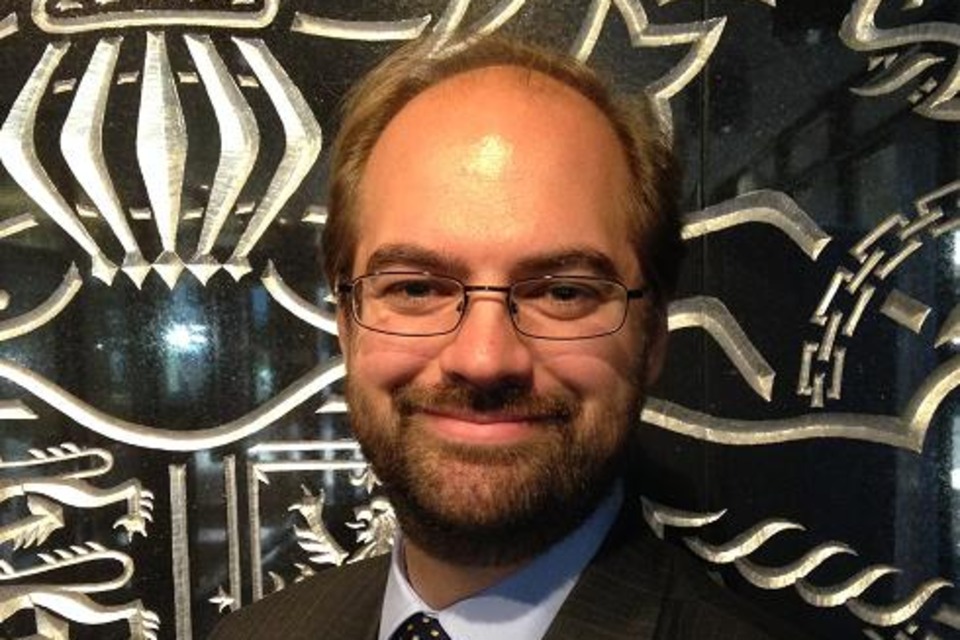First Preparatory Committee for 2026 Non-Proliferation Treaty Review Conference: UK statement on Cluster 1 issues
The UK Ambassador and Permanent Representative to the Conference on Disarmament spoke at the First Preparatory Committee for the 2026 NPT Review Conference.

Mr Chair, the United Kingdom remains committed to the long-term goal of a world without nuclear weapons with undiminished security for all, as the Prime Minister reaffirmed when he visited Hiroshima in May. We firmly believe that the only credible way of achieving this goal is gradual multilateral disarmament negotiated through the NPT.
We must be clear eyed about the challenges we face in this task as the security environment has grown more challenging. The UK’s 2021 Integrated Review and its 2023 Refresh set out the growth in systemic competition between states. Some are significantly increasing and diversifying their nuclear arsenals. Some are investing in novel nuclear technologies and developing new ‘warfighting’ nuclear systems which they are integrating into their military strategies and doctrines and into their political rhetoric to seek to coerce others.
As a nuclear-weapon state that takes its responsibilities seriously, the UK will continue to work internationally towards creating the environment for a world without nuclear weapons. The UK has made a significant contribution to the reductions in the global stockpile of nuclear weapons. Since the end of the Cold War, the UK has approximately halved its stockpile and continues to have the lowest stockpile of any Nuclear Weapon State. We have de-targeted and de-alerted our nuclear weapons and have reduced our deterrent capability to a single delivery system and the role of nuclear weapons in our national security strategy. We have reaffirmed our negative security assurances, and our support for Nuclear Weapon-Free Zones.
It is important that parties to the arms control architecture fully implement their obligations under it. We urge Russia to return immediately to full compliance with the New START treaty, and to engage constructively with the United States on this matter.
But progress on disarmament is reflected not just through reductions in weapon stockpiles. We must also build collective trust and create a better security environment – not as a condition, but an enabler for our ultimate goal.
In this context, and recognising that it is not a substitute for disarmament, we must redouble our efforts on strategic risk reduction. The UK is ready to work with all states – including those who may threaten our interests and security – to build stability, transparency and better mutual understanding, and to identify and implement effective measures for strategic risk reduction which reduce the likelihood of nuclear use.
Mr Chair, the best way to make progress on disarmament in the current circumstances is to focus on working on the pragmatic and necessary steps to lay the groundwork for the future. The UK is committed to playing its part in this essential work.
In this review cycle, we will dedicate our efforts to making progress on verification, irreversibility and transparency, building on the working papers we submitted, on our own and with partners, at last year’s Review Conference.
On verification, we will continue our domestic research programme and international work, including in the Quad Nuclear Verification Partnership and with the International Partnership for Nuclear Disarmament Verification. We are pleased that the UN Group of Government Experts was able to adopt consensus conclusions and recommendations. We hope that we can continue this work, including establishing a UN Group of Scientific and Technical Experts.
We will also play our part in further developing our collective thinking on the principle of irreversibility. As set out in the joint statement delivered earlier by the distinguished representative of Norway, we will sponsor relevant research, convene conferences and share the results. We warmly invite all delegations to our side event on this subject, co-hosted with Norway and VERTIC, in Room M6 this lunchtime.
The UK has long spoken of the importance of the principle of transparency. Transparency both underpins confidence-building and negotiations between Nuclear Weapon States, and accountability to our Parliament and public and to fellow States Parties in our implementation of the NPT. While it was encouraging that proposals on this issue at last week’s Working Group on the further strengthening of the review process commanded broad support, we were disappointed that they could not be agreed. We should continue to work on these proposals in the context of the Preparatory Committee with a view to improving the quality, consistency and use of reporting at the Review Conference.
Mr Chair, it is 25 years since the UK signed the Comprehensive Nuclear Test Ban Treaty, 28 years since we declared a voluntary moratorium on the production of fissile material for nuclear weapons, and 30 years since the consensual adoption of a UN General Assembly resolution calling for a Fissile Material Cut-off Treaty. We continue to call for the entry into force of the CTBT and the commencement of negotiations in the Conference on Disarmament on an international and effectively verifiable treaty banning the production of fissile material for nuclear weapons and other nuclear explosive devices.
Mr Chair, let me conclude by assuring you of the UK’s continued commitment to progress on this issue throughout this review cycle.